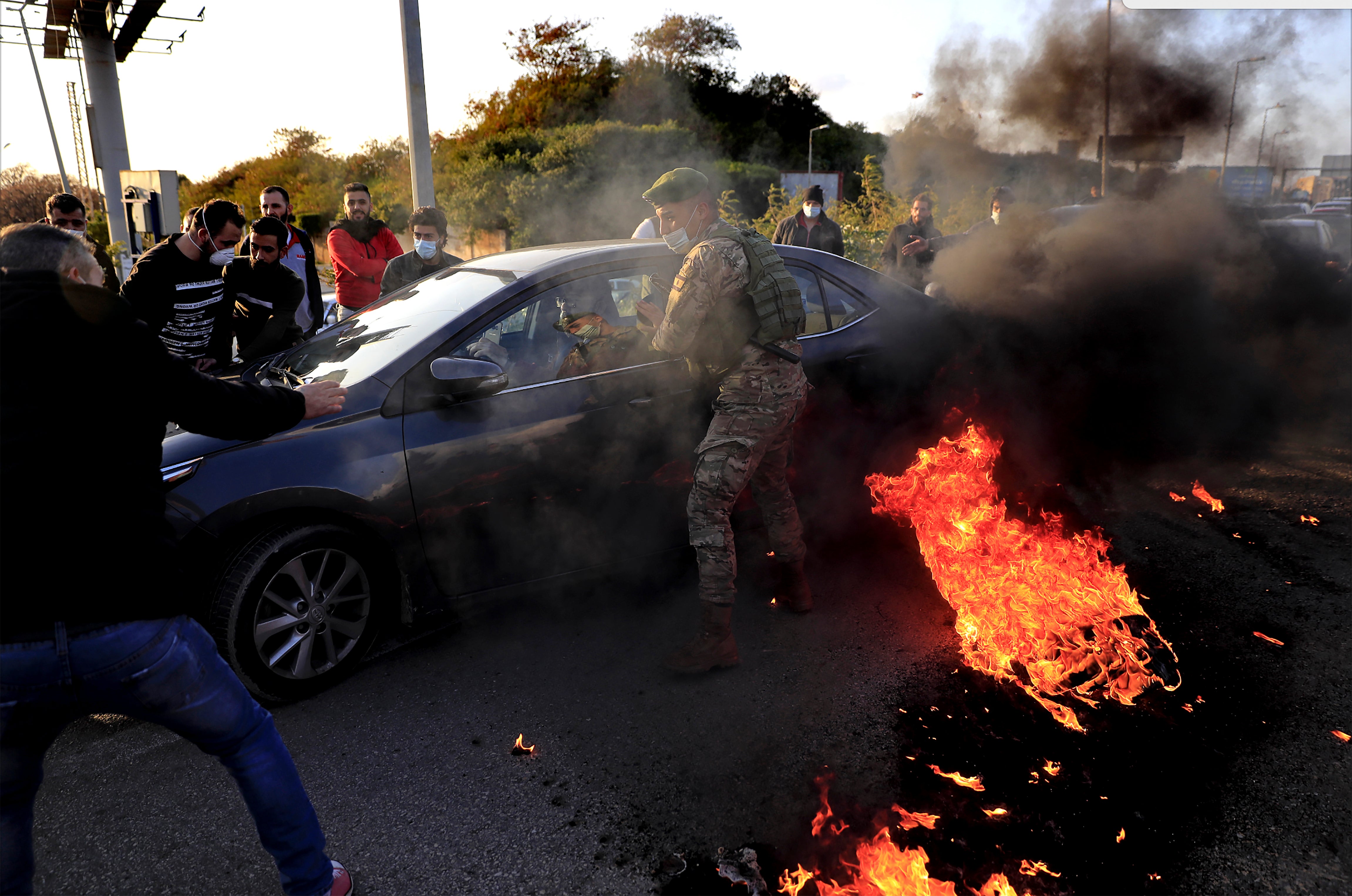Lebanon's president wants investigation into currency crash
Lebanon’s president has ordered the central bank governor to open an investigation into currency speculation, after the Lebanese pound plunged to record lows on the black market this week, leading to protests

Your support helps us to tell the story
From reproductive rights to climate change to Big Tech, The Independent is on the ground when the story is developing. Whether it's investigating the financials of Elon Musk's pro-Trump PAC or producing our latest documentary, 'The A Word', which shines a light on the American women fighting for reproductive rights, we know how important it is to parse out the facts from the messaging.
At such a critical moment in US history, we need reporters on the ground. Your donation allows us to keep sending journalists to speak to both sides of the story.
The Independent is trusted by Americans across the entire political spectrum. And unlike many other quality news outlets, we choose not to lock Americans out of our reporting and analysis with paywalls. We believe quality journalism should be available to everyone, paid for by those who can afford it.
Your support makes all the difference.Lebanon’s president ordered the central bank governor on Wednesday to open an investigation into currency speculation, after the Lebanese pound plunged to record lows on the black market this week, leading to protests in the stricken country.
The request by President Michel Aoun came after the country’s banks were required to raise their capital holdings by Feb. 28, and local media reported that some had to scramble to get hard currency from the black market, sending demand for it — and its prices — surging.
While officialy, the U.S. dollar costs only 1,520 Lebanese pounds, the black market price was around 9,900 pounds on Wednesday — a day after briefly hitting a record high of 10,000. Just a few months earlier dollars could be bought at a rate of some 7,000 pounds.
In a statement released by his office after meeeting central bank governor Riad Salameh, Aoun said if it turns out that the crash was because of speculators, they should face justice. Enraged protesters, angry over the higher costs of dollar denominated goods, have blocked roads and highways with burning tires across the country.
Lebanon’s banking association denied it was responsible for the situation, blaming instead a lingering political implasse, pileups of unpaid state contracts, and houshold dollar hoarding.
Bickering between Lebanon s political rivals has left the country in a stalemate for months, only worsening the economic disaster sparked by a debt crisis and soverign default last year. Disagreements between Aoun and Prime Minister-designate Saad Hariri have delayed the formation of the government for more than four months.
Lebanon has been hit by one crisis after another, with widespread protests against the country’s corrupt political class breaking out in October 2019. That has been compounded by the coronavirus pandemic and a massive blast in Beirut’s port last August that decimated the facility.
The country desparately needs foreign currency, but international donors want major anti-corruption reforms first, lest the funds disappear into a notorious state sector sinkhole that has brought the nation to the brink of bankruptcy.
The crisis has driven nearly half the population of the small country of 6 million into poverty. Over 1 million refugees from Syria live in Lebanon.